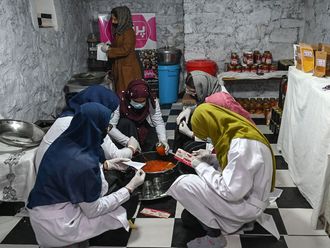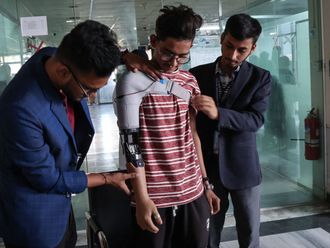Chinese authorities and the World Health Organisation (WHO) say a new strain of coronavirus is behind the outbreak of pneumonia in the central city of Wuhan that has now spread to other parts of the country.
Some experts say the strain may not be as deadly as some other strains of coronavirus such as Severe Acute Respiratory Syndrome, which killed nearly 800 people worldwide during a 2002/03 outbreak that also originated from China.
Little is known about the new virus, including its origin, but health authorities have confirmed human-to-human transmission.
Known cases
As of January 21, there were more than 200 confirmed cases of patients in China and elsewhere with the new strain of coronavirus. Their symptoms included fever, coughing and difficulty breathing.
Of the 198 patients in Wuhan itself, four have died.
National and local health authorities in China have also reported 21 patients outside of Wuhan, including five in Beijing and two in Shanghai, marking the first instances of the virus spreading to other parts of the country.
South Korea on January 20 reported a new case of the virus involving a Chinese traveller from Wuhan.
Thailand has reported two confirmed cases of the virus, both of whom were Chinese tourists from Wuhan.
Japan also confirmed one case of a Japanese citizen who visited Wuhan.
Little known about virus itself
Chinese health authorities are still trying to determine the origin of the virus, which has been linked to a seafood market in Wuhan. They have confirmed human-to-human transmission and that 15 medical staff in the country have been infected.
The WHO says an animal source appears most likely to be the primary source of the outbreak.
Countermeasures
There is no vaccine for the new virus.
Chinese authorities have stepped up monitoring and disinfection efforts ahead of the Lunar New Year holiday in late January, when many of China’s 1.4 billion people will travel domestically and overseas.
Airport authorities in the United States as well as many Asian countries, including Japan, Thailand, Singapore and South Korea, stepped up screening of passengers from Wuhan.
Singapore announced on January 21 that it will quarantine individuals with pneumonia and travel history to Wuhan within 14 days before the onset of symptoms.
The WHO sent directives to hospitals around the world on infection prevention and control. It has also convened an emergency committee of experts on January 22 to assess whether the outbreak constitutes an international emergency.












